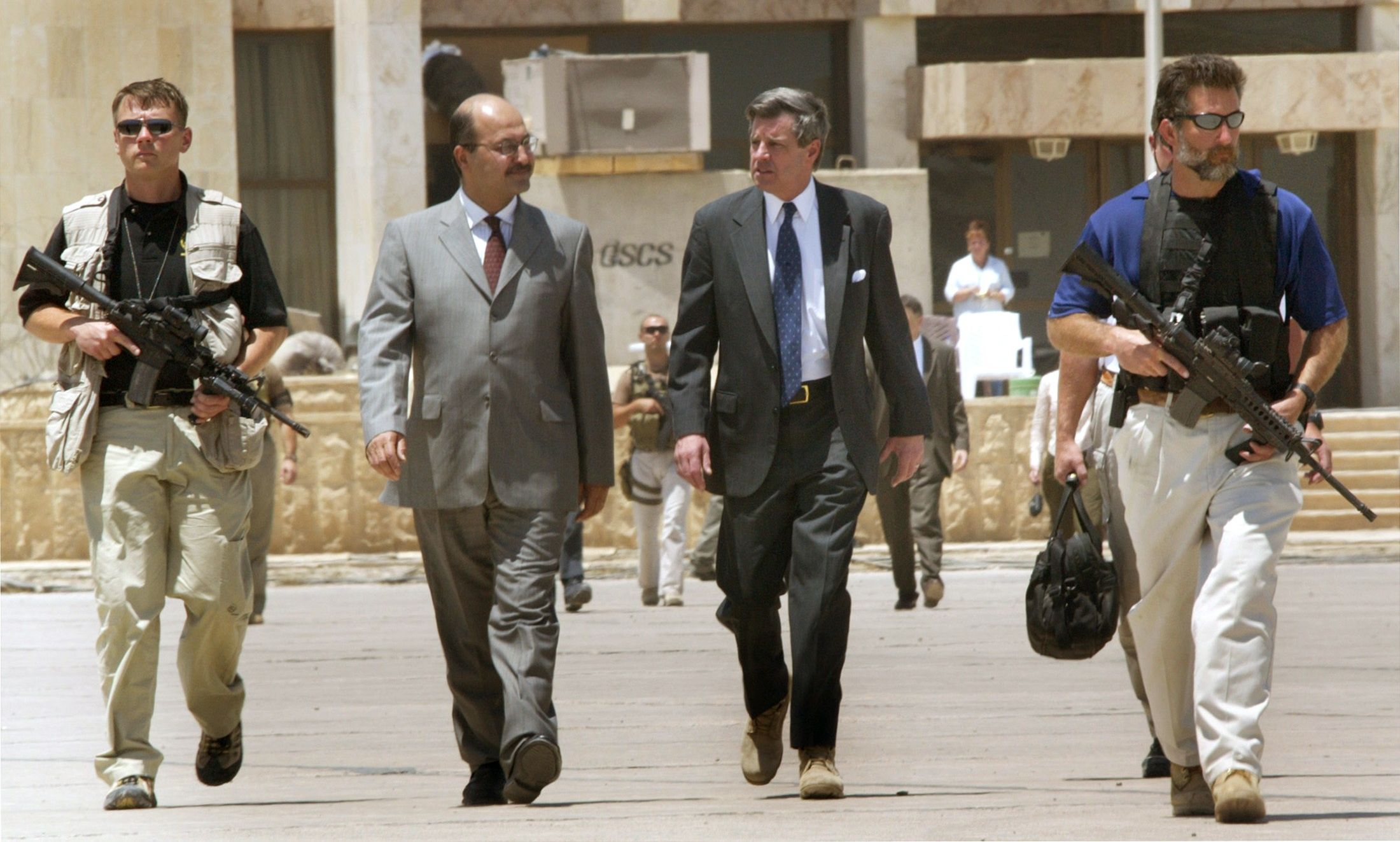The Trump administration is reportedly considering a plan for the U.S. to lead the administration of Gaza after Israel’s siege, similar to how Washington ran Iraq after the 2003 American-led invasion.
Reuters reports that there have been “high level” discussions “centered around a transitional government headed by a U.S. official that would oversee Gaza until it had been demilitarized and stabilized, and a viable Palestinian administration had emerged.”:
The sources, who spoke on condition of anonymity as they were not authorized to discuss the talks publicly, compared the proposal to the Coalition Provisional Authority in Iraq that Washington established in 2003, shortly after the U.S.-led invasion that toppled Saddam Hussein.
Most experts cite the CPA as the catalyst for an impending insurgency that mired the U.S. military in war in Iraq for more than a decade, from which hundreds of thousands were killed at a cost of upwards of $3 trillion.
Like the U.S.-led war in Iraq, Reuters adds that “there would be no fixed timeline for how long such a U.S.-led administration [in Gaza] would last” while “[a] U.S.-led provisional authority in Gaza would draw Washington deeper into the Israeli-Palestinian conflict and mark its biggest Middle East intervention since the Iraq invasion.”
Quincy Institute research fellow Annelle Sheline called the idea “appalling and absurd,” adding, “Americans should remember the futility of imposing a government on Iraq at the barrel of a gun. The fact that Trump is apparently considering this demonstrates how captured he is by Israel, rather than prioritizing the interests of the United States."
“If this is true, then it is a complete turn to the policies of the Bush administration in terms of occupying Middle Eastern land,” added the Quincy Institute’s Trita Parsi. “It’s the opposite of what Trump promised the American people in terms of bringing troops home and disentangling the U.S. from the region.”
Parsi continued: “It also shows that as long as Israel’s occupation of the Palestinian territories continues, which is the root cause of the violence, the U.S. will always face pressures to be pulled back into the Middle East.”
Hardline neoconservative think tank Jewish Institute for National Security Affairs, or JINSA, and the Vandenberg Coalition released a plan last year — with similar contours to what Reuters reported — that called for the creation of a private entity, the “International Trust for Gaza Relief and Reconstruction” to be led by “a group of Arab countries such as Saudi Arabia, Egypt, and the United Arab Emirates” and “supported by the United States and other nations.”
















